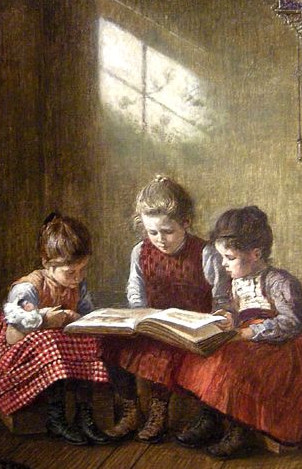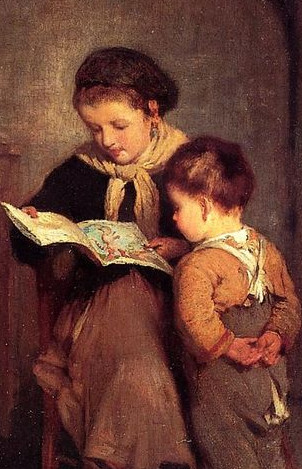Literacy Blogs
- All
- 3-cueing
- academic learning time
- academic vocabulary
- accommodations
- accountability testing
- Active View of Reading
- adolescent literacy
- afterschool programs
- alphabet
- amount of instruction
- amount of reading
- argument
- assessment
- auding
- author awareness
- automaticity
- balanced literacy
- beginning reading
- Book Buddies
- Book Flood
- challenging text
- classroom organization
- close reading
- coaching
- cohesion
- Common Core State Standards
- complex text
- comprehension strategies
- content area reading
- context analysis
- curriculum materials
- Daily 5
- decoding
- departmentalization
- DIBELS
- dictionary skills
- digital texts
- disciplinary literacy
- dyslexia
- early interventions
- effective teachers
- Emily Hanford
- executive function
- family literacy
- fingerpoint reading
- foundational skills
- graphic novels
- guided reading
- heterogeneous grouping of students
- homework
- improving reading achievement
- independent reading
- independent reading level
- informal reading inventories
- informational texts
- instructional level
- invented spelling
- jigsaw instruction
- knowledge
- leadership
- learning disabilities
- Lexiles
- linguistic comprehension
- listening comprehension
- literacy charities
- literacy policy
- literary interpretation
- main idea
- morphology
- motivation
- narrative text
- National Early Literacy Panel
- nonsense words
- oral language
- oral reading fluency
- paraphrasing
- Pause, Prompt, Praise (3P)
- personalized learning
- phonemes
- phonemic awareness
- phonics
- press and media
- principals
- prosody
- Readers' Workshop
- reading comprehension
- reading disabilities
- reading intervention
- reading levels
- reading models
- Reading Recovery
- reading research
- reading skills
- reading strategies
- reading to children
- reading wars
- reading-writing relations
- remedial reading
- rereading
- Response to Intervention
- Scarborough's Rope
- science of reading
- seatwork
- semantics
- sentence comprehension
- sequence of instruction
- set for consistency
- set for variability
- shared reading
- shared reading
- sight vocabulary
- simple view of reading
- Simple View of Reading
- small group instruction
- social studies
- sound walls
- Special Education
- speech-to-print phonics
- spelling
- stamina
- summarizing
- Sustained Silent Reading
- syllabication
- syntax
- syntax
- testing
- text complexity
- text interpretation
- text reading fluency
- text structure
- theme
- think-pair-share
- trauma
- visualization
- vocabulary
- word walls
- writing
- zone of proximal development (ZPD)
RtI on Steroids, or Why I Believe in the 9-Tier Model
The latest rage in the schools is RtI. Special education money (about 15% of it) can now be used for improving classroom instruction and installing preventative intervention programs. I'm a big fan of this movement for several reasons: First, because the best way to determine if someone has a learning problem is to offer really good teaching and if the struggling continues then you know. Second, special education programs simply haven't worked very well for most kids, and the learning disabilities label has been over applied, and those programs are getting expensive. But even though I like RtI, I have problems ...
Encouraging Summer Reading
Blast from the Past: So much has changed since this was first posted 12 years ago, so I decided to update this. Then, supporting children’s summer reading was a nice thing to do, but these days it is critically important given how much face-to-face schooling kids have missed. I’ve added a few ideas here and provided a lot of useful link that are all up to date. Send this along to your favorite parents, teachers, and librarians. May 29, 2009 updated June 26, 2021 This is the time of the year when schools often try to reach out to parents to encourage ...
Irish Literacy
What a great week... I just got back from a very pleasing visit to Dublin, Ireland. My Irish friends invited me over to see if I could provide any help to their wonderful "youngballymun" project. Ballymun is an area of Dublin that is economically challenged. Ireland has one of the world's best education systems and among the highest literacy levels, but everything isn't what it should be in Ballymun. As in major cities all over the U.S., the kids who live in economically-challenged neighborhoods (with the worst housing, the most serious health problems including drug abuse, etc.) do worst in school. ...
Teaching with Clenched Teeth
First posted May 11, 2009. Blast from the past July 20, 2017 Here we are at the height of summer... I just got back from the International Literacy Association conference and I was hearing about teachers already preparing to start back to school this month! Summers used to mean baseball--not the school year. This blog might remind everyone of a key characteristic of effective of reading teachers. Teaching should follow research, and teachers ought to use the kinds of tools and routines that have been found to be effective in the past. In the Chicago schools, I imposed time standards to make sure ...
Reforming NCLB: What to Keep
The next version of the Elementary and Secondary Education Act is going to be quite different from “No Child Left Behind” (NCLB). That’s both good since real changes are needed, but it’s a little scary, too, because NCLB represented a remarkable and positive break with past federal education policy. A quick pre-2000 history lesson: At the federal level, Republican and Democratic views of education had evolved into an unfortunate stalemate. Republicans usually opposed federal education spending for Constitutional and budgetary reasons. Their argument was that education was the responsibility of the states and that Uncle Sam should stay out of the ...
Persistence of reading problems: Research-based fact or urban myth?
Blast from Past: First posted March 30, 2009; reposted May 3, 2018. I didn’t think I’d be re-issuing this one, but this week, I heard two of these myths repeated so, perhaps, time for a reminder of the facts. Last week, I heard from the Education Writers Association requesting information about what happens to children who don’t learn to read well by third grade… Do they drop out of high school? End up in jail? Become wards of the state? Go into politics? (Okay, they didn’t really ask that last one, I was just checking to see if you were paying attention.) The Writers had checked NAEP reports and ...
Demolishing a Straw Man: Should We Teach Fluency?
What’s the relationship between oral reading fluency and reading comprehension? Does fluency instruction automatically lead to comprehension? Are reading comprehension and fluency independent processes? Reasonable questions like those abound about this aspect of learning to read. However, if you are seeking answers to such questions in the recent article on fluency and reading comprehension that appears in The Reading Teacher (RT, March 2009, vol. 62 (6), pp. 512-521), don’t bother. The problem is that the authors, M. D. Applegate, A. J. Applegate, and V. B. Modla, have made up a straw man (um, straw person) argument implying that someone out there ...
The Problem with Guided Reading
The main point of “guided reading” is to make sure kids are being taught from books that are not too far beyond their skills. If a book seems like hieroglyphics to a kid, then not much learning could be expected. (Likewise, books can be too easy… presenting neither challenge nor much to learn). Trying to get kids into the “just right” reading level has been an issue of long interest in the field of reading. The independent/instructional/frustration level scheme has now been around for about 60 years (since Emmett Betts described these levels in his landmark textbook). Frustration level is the ...
Ten Things Good Writers Do
I was asked to write the following for a local high school that wanted to provide some writing guidelines for its students. This might be of use to you, too. I hope so. Ten things good writers do… 1. Good writers make a good first impression. They put extra effort into their introductions and first paragraphs because they want readers to read on. Consider this wonderful opener from E. B. White:”When Mrs. Frederick C. Little’s second son was born, everybody noticed that he was not much bigger than a mouse.” That simple sentence took a lot of work, but it sure makes ...
Why It Sometimes Looks Like Teaching Does Harm
Blast from the Past: This blog originally posted March 13, 2009; and was reissued on November 29, 2017. Teachers often experience frustration when it looks like the kids are regressing as a result of teaching. This entry may be a healthy reminder as to what is actually going on. Keep teaching. I was speaking with a teacher who was not a big fan of phonics instruction. It was not that she was totally against it, in fact, her concerns had arisen from observing the children who she was teaching phonics too. She was concerned because, often, when she introduced ...









